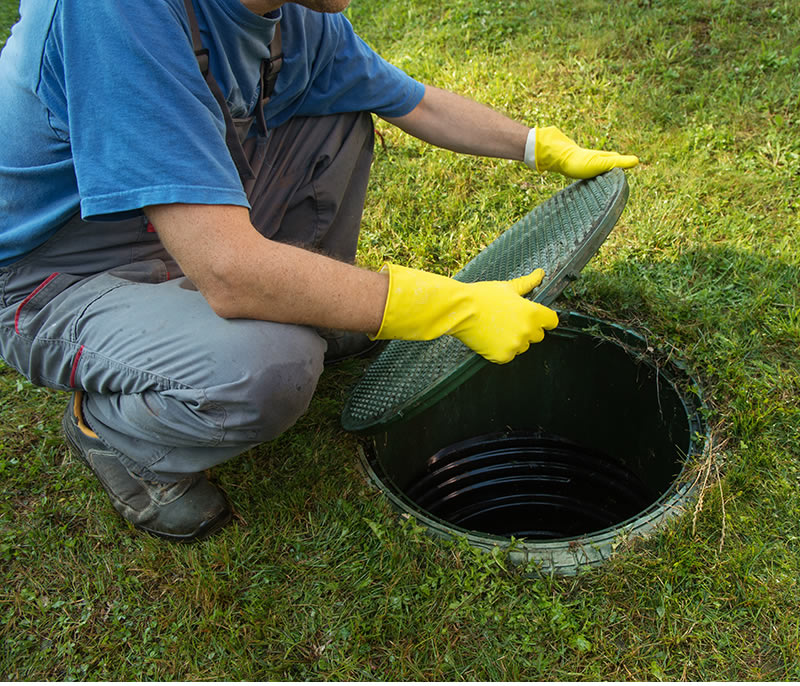Call This Monday to Get $50 OFF
Call us Now to Get $50 OFF.
Ratings based on 6379 reviews
Local Plumbers, Local Reviews
Call This Monday to Get $50 OFF
Call us Now to Get $50 OFF.
Ratings based on 6379 reviews
Local Plumbers, Local Reviews

A septic cleaning is the removal of all water and accumulated sludge from a septic tank with the help of pressurized water. Septic cleaning is a crucial service, but many homeowners are unaware of what really happens during a septic cleaning appointment. In this article, we will go over what happens during a regular process step-by-step. If you want to learn more, call Mr. Rooter Plumbing today.
The first thing that professionals do when they arrive at the appointment is locate the tank. Locating a septic tank isn’t a difficult task. Most original homeowners know the exact location of the tank and point it out to the specialists. If you aren’t the original homeowner and don’t know the location of the septic tank, professionals track the sewer lines in your home to determine where these lines drain into. Once they know the location of the tank, technicians will open the access lid. This step may require some excavation to easily reach the septic tank.
After locating the tank, technicians will assess the waste in it to see whether the liquid levels are normal, high, or low. Most problems with the drainfield can cause excessively high levels of wastewater in the tank, while leaks and cracks in the tank can cause low levels. High levels of wastewater indicate that wastewater coming from your house isn’t being processed by the drainfield effectively, often as a result of a clog.
After assessing the effluent levels in the tank, specialists use vacuum trucks for septic pumping to remove any sludge inside the tank. A hose is inserted inside the tank to remove all contents of the septic compartments. This suction from the hose transfers all the waste from the tank to the truck, which later gets disposed of. Additional tools like septic cleaning spoons can also be used to remove the waste that attaches to the walls and floors of the tank.
Once the tank is free from effluent and solid waste, technicians now use fresh water to rinse the tank. Most specialists use water jetting to get a clean and effective cleaning. Cleaning the tank also helps specialists to get a clear look at any signs of physical damage or wear-and-tear within the tank. They may also be able to clearly see whether water backs up from the drainfield back into the septic tank to further assess the condition and recommend a repair or replacement, depending on the condition. Most septic tanks need to be cleaned once every three to five years, but this number may vary based on the frequency of your septic system use and the size of your household. If you want to learn more about septic services, call Mr. Rooter Plumbing today.
Are you looking to work with a septic company for your next septic cleaning? At Mr. Rooter Plumbing, we are a locally owned and operated plumbing company. We are here to help you avoid septic system problems. Call us today to learn more about us and our services.
Did you know that multiple pipes run underground in your property, and damage to these pipes is mostly…
Read MoreFor many homeowners, septic maintenance seems confusing and overwhelming. Compared to city sewer systems, how well you maintain…
Read MoreWe all know that septic tanks are meant to handle waste to a certain degree. However, do we…
Read MoreFor homeowners who live in areas that receive heavy rainfall throughout the year, sump pumps aren’t just a…
Read MoreWhen it comes to septic health, you can be one of those homeowners that try to do everything…
Read More